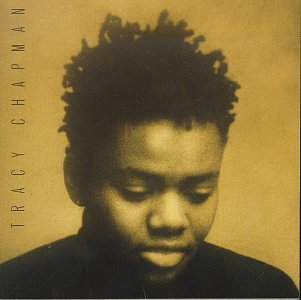
| Artist: | Tracy Chapman |
| Title: | Tracy Chapman |
| Released: | 1988 |
| Label: | Elektra Asylum Records |
| Time: | 36:11 |
| Producer(s): | David Kershenbaum |
| Appears with: | |
| Category: | Pop/Rock |
| Rating: | ********.. (8/10) |
| Media type: | CD |
| Purchase date: | 2000 |
| Price in €: | 1,00 |
| Web address: | www.tracychapman.com |